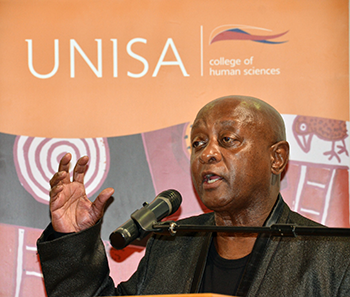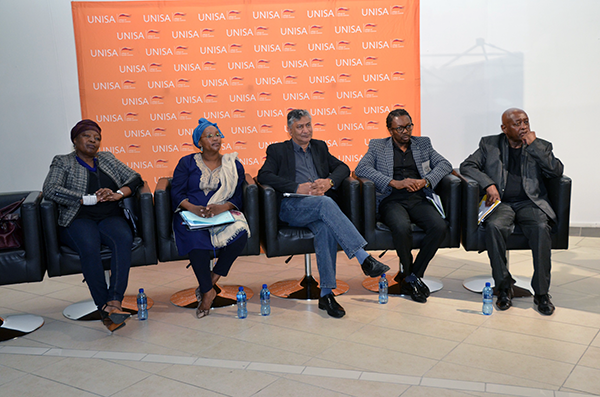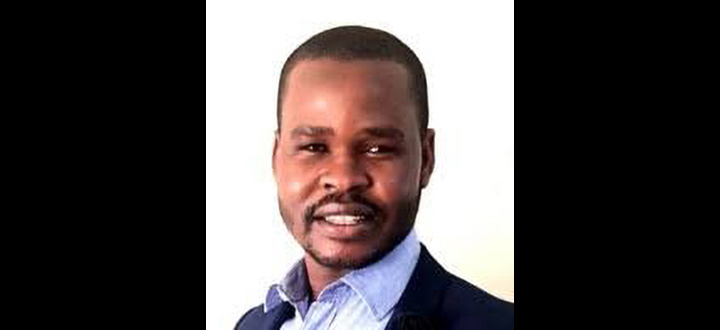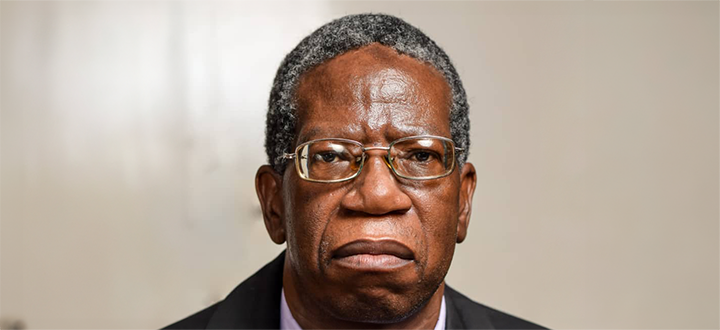Leading change
We were not ready to govern—Ngema

Dr Mbongeni Ngema
As the country acknowledges its 23rd Freedom Day, Dr Mbongeni Ngema, composer of the acclaimed musical Sarafina, believes the only way South Africans can be united is through the arts. He was speaking at Unisa, when the College of Human Sciences (CHS) hosted him and a group of panellists to reflect on the story of Sarafina in post-apartheid South Africa.
According to Ngema, apartheid may be over, but the war is far from over. “The only way to go forward and embrace the future is if we go deep into the past and understand who we are, not only politically and economically but also spiritually. The very fabric of our society was desecrated.”
He said as the ANC moves towards electing a new president, we need to conscientise and unite our people. “We are tired of dividing our people. The politics of today is dividing our people. That is why we have so many splinter organisations. We are not getting anywhere.”
Ngema said that South Africa today needs one leader who will conscientise and unify our people. “Works like Sarafina speak to that, to conscientising and uniting our people…it resonates with people.”
He also said: “I think we were not ready to govern; I think it happened too quickly. I think the negotiations were not carefully thought through; we did not know what we wanted to get out of the negotiations. We wanted political power; we thought it would solve everything. Now this whole can of worms, we have ourselves to blame. I don’t think the ANC, as the largest political organisation, prepared people while they were in exile to govern South Africa.”
Head of Research and Graduate Studies in CHS, Prof Puleng Segalo said the world was euphoric under Nelson Mandela’s leadership, the public theatre and spectacle of the Truth and Reconciliation Commission came and went, yet as we approach Freedom Day 2017, some troubling questions remain.
“Has there been closure and healing for those who made sacrifices for the democratic dispensation? Has the school system for the majority of black children in Soweto and elsewhere been significantly transformed since the time of Tsietsi Mashinini on whose memory and activism the play is based? Was the brutal sacrifice of the Mxenges and many others in vain if students still come head on with the state militarism in the wake of #FeesMustFall demonstrations?”
Thembela Vokwana, junior arts lecturer at Unisa, said consequentially, Sarafina bears relevance for today’s struggles, namely, the quest for curricular relevance and calls for a decolonial education, the ideological underpinnings of the #RhodesMustFall movement and overall agitation against state power, the government’s failings in equitable service delivery coupled with the emerging repression against the populace and opposition. “We suggest Sarafina, 30 years later, bears relevance to the stories and struggles of our times.”

Sibongile Mkhabela (CEO, Nelson Mandela Children’s Funds), Dr Nthabiseng Motsemme (Academic Director, NIHSS), Ismail Mahomed (CEO: Market Theatre and former CEO: Standard Bank-Grahamstown Arts Festival), Aubrey Sekhabi (Artistic Director: South African State Theatre), and Dr Mbongeni Ngema (composer and producer of Sarafina)
Watch on YouTube
- Panel discussion on Sarafina:
- Dr Mbongeni Ngema on making Sarafina
*By Rivonia Naidu-Hoffmeester
Publish date: 2017-05-02 00:00:00.0


 Unisa honours Dr OK Matsepe's enduring legacy
Unisa honours Dr OK Matsepe's enduring legacy
 Great strides towards concretising Unisa-PMC partnership
Great strides towards concretising Unisa-PMC partnership
 Mental health among men in the workplace needs more attention
Mental health among men in the workplace needs more attention
 "I owe everything to Unisa and my late supervisor's priceless mentoring"
"I owe everything to Unisa and my late supervisor's priceless mentoring"
 Majikijela - a queer scholar raising homosexuality awareness through his work
Majikijela - a queer scholar raising homosexuality awareness through his work